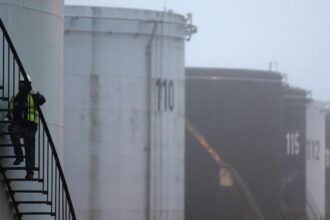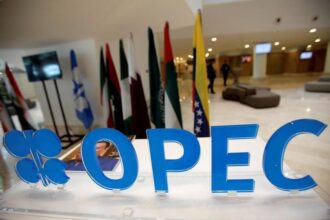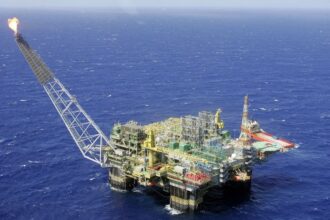MOSCOW (Reuters) – Insurance companies have notified charterers of ships operating in Russia’s Black Sea ports of an increase in additional payments known as “war risk premiums”, four traders said.
A war risk premium was added to the common insurance costs for tankers last year after the start of Russia’s military action in Ukraine, which Moscow calls a special military operation.
Military actions in the Black Sea area of Russian and Ukrainian Black Sea ports have escalated since the grain export deal fell apart in mid-July.
Most recently Russia reported several attacks at its Black Sea ports. So far, oil loadings from Russia’s Black Sea ports have not been affected by the attacks, but risks are mounting, traders said.
The war risk premium was increased from around 1% of the cargo’s cost to some 1.20-1.25%, the traders said.
The increase means every voyage will cost $200,000 per one Suezmax tanker (can carry 120,000-200,000 tonnes) more if Russian oil is delivered to India. The rise in the premium means the overall cost of the premium will be almost $1 million.
Although the sum is not huge it adds to Russia’s overall oil export costs, which have soared since February 2022 due to sanctions.
At the peak of Russian supply and sanctions crisis Russian companies were paying as much as $20 million per tanker towards insurance shipping and freight costs representing more than a third of each cargo’s value.
Traders added the increase was mostly applied to cargoes carrying Russian oil and products, while the premium of cargoes carrying Kazakh origin volumes was generally stable around 1%.
“Volumes originated from Russia are associated with higher risks than others, though current situation gives insurers lots of reason to raise prices for anyone operating in Russian Black Sea ports,” one of the traders said.
Grain traders have expressed concerns about the security of grains shipments and the rise in war risk premium for oil tankers shows the worries have spread to wider markets.
Overall loadings from Black Sea Novorossiisk and CPC terminal account for some 2% of global supply. Oil product exports from Russia’s Black Sea ports is about 4 million tonnes per year.
Read the full article here










